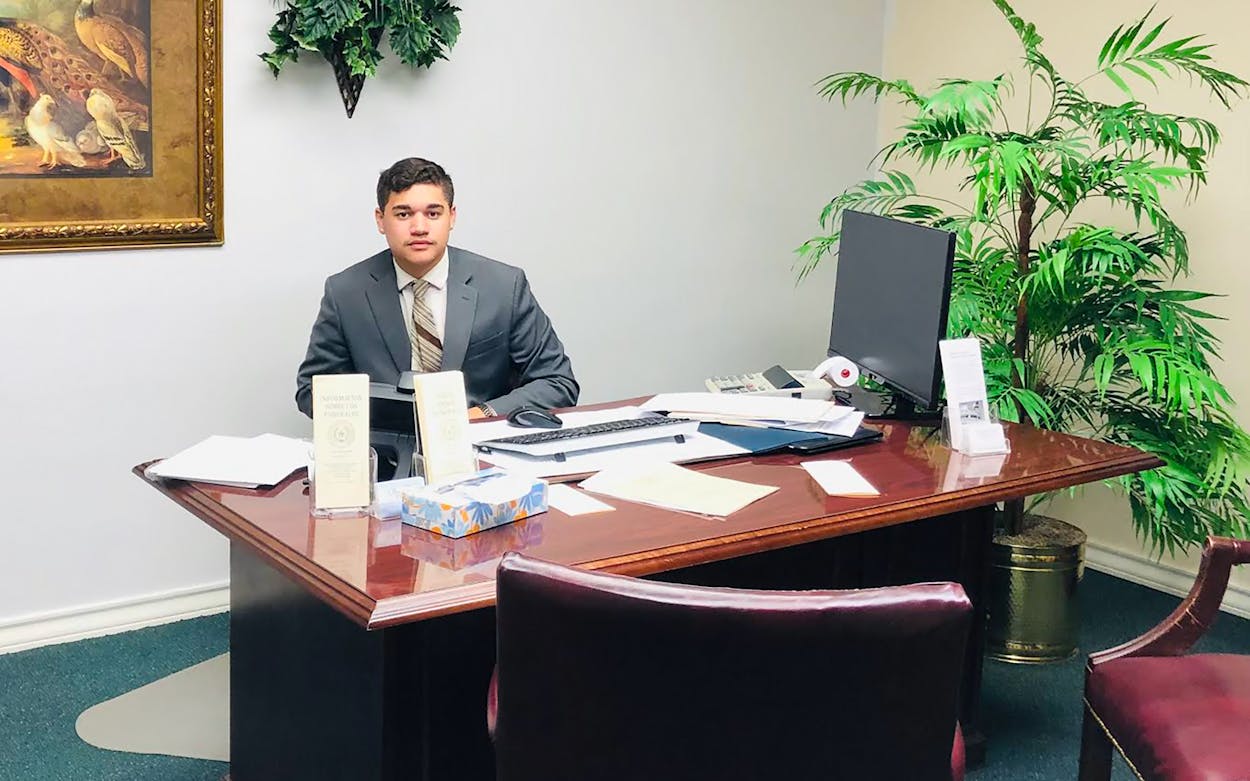Since November, when COVID cases began spiking in the Panhandle, my phone has rarely been quiet. The “death calls” arrive at all hours of the day. Before the pandemic, the calls usually concerned an elderly person who had passed away in a nursing home. Now it can be anyone.
The coronavirus has infected more than 2,400 people in Deaf Smith County and has killed 56. But not everyone is comfortable admitting that. A lot of residents won’t say, “My dad or mom died of COVID,” even when the death certificate confirms it. They don’t want the name of the virus uttered out loud during a loved one’s funeral. There’s shame surrounding the disease because so many locals ignored it before losing a family member. They didn’t take it seriously; they gathered large groups in close quarters and refused to wear masks.
The funeral home I help to manage has buried farmers, truck drivers, and welders, most of them still in their fifties. Last month, my business received fifteen death calls—fifteen families and fifteen separate funerals, each with its own needs and preferences. In the past, it might have taken us five or six months to reach that number. I have to be ready at all times to put on a suit, then my mask and gloves, and hop in the “morgue van”—a Dodge Caravan with the backseats removed. Sometimes the body is waiting for me inside a hospital mortuary. Other times, the deceased is in a bedroom, surrounded by family.
Some funeral homes in the Panhandle refuse to embalm infected bodies, which requires close contact, and only offer cremation. Where I work we offer embalming and also conduct funerals and viewings. Some families of the deceased wear masks; others don’t. You can’t force someone to wear one, especially during a funeral. I know my job puts me at some risk, but I don’t feel any fear, not even a little. I’ll even shake family members’ hands and give them a hug. I do it because helping others in their toughest moments—and giving them a chance to say goodbye to their loved ones—is my passion.
Some family members of the deceased have asked me whether I’m being paid to alter death certificates to exaggerate the pandemic death toll, a question that suggests our industry is part of some vast conspiracy. The idea, which flourishes on social media, is that the funeral home and the hospital are involved in an effort to exaggerate the numbers of local deaths for extra money. I’m not a political person, but this has become a political virus in Deaf Smith. I wish more residents understood that I don’t want any part of the controversy. I don’t do this for income.
At nineteen, I may be the youngest Texan overseeing funerals during the pandemic (not including kids who help out with their parents’ business). I knew this was my passion from the time I was ten years old. I still remember the moment I decided on this career. My teenage cousin had lost a long battle with cancer and when I went to her viewing I was stunned. She was lying in the casket wearing her prom dress. Her hair was perfect, her makeup exquisite. It was my first time viewing a body, but I still remember how much it meant to my family.
Growing up, I didn’t tell friends about my plan to work in a funeral home. I didn’t want them to try and keep me from my dream. Most kids in Hereford want to be football players or ranchers—not morticians. I guess I’ve always been mature for my age. I spend my days dealing with death. I know it sounds like an unusual life, but it has never felt weird to me.
But there’s no denying that this year has been extremely stressful. My business has spent more than $7,000 on paper for funeral leaflets alone in 2020. I’ve had to order guest books twice since the pandemic hit because they keep getting filled.
There have been moments when I’ve felt like quitting. One day last month, we held three funerals in a single day. While juggling the requests of dozens of family members, I had to make sure everything was perfect—the candles, the leaflets, the flowers, the funeral contracts, and the livestream. A funeral is a type of performance. I’m not an actor, but I’m always being watched. Ultimately, it’s the dedication to the families that keeps me going. During the pandemic, I believe this is the role I was meant to play.
Read more from our Notes on a Pandemic series:
An Eighth Grader Battles Existential Gloom, Watches Netflix
A Prepper Community Near Terlingua Is Ready for Just About Anything
He Hoped Sheltering in Place Would Save His Marriage. Instead, It Led to Divorce.
I Live in the Middle of Nowhere. I Still Got COVID.
- More About:
- Health






